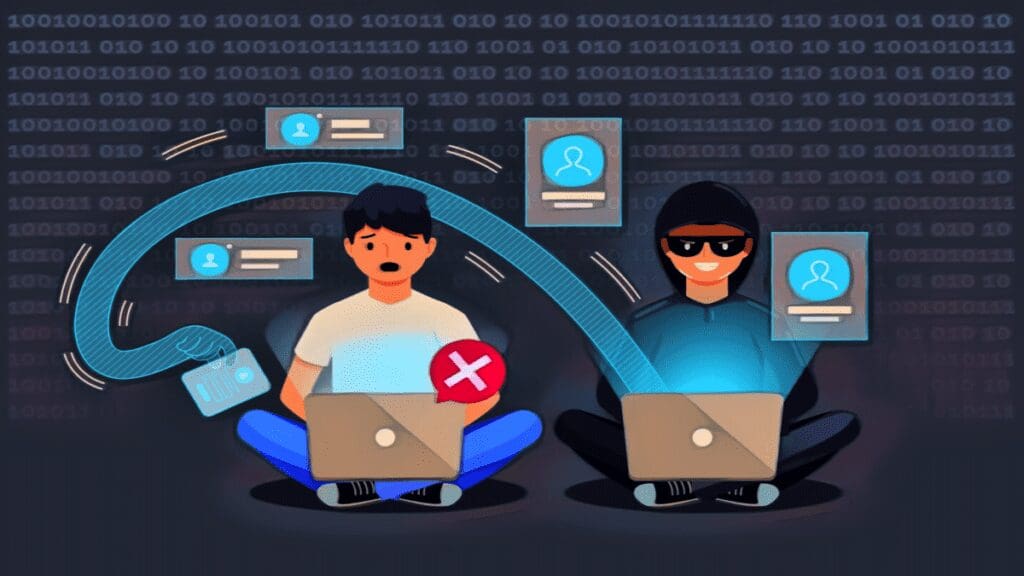Carrying out Peer-to-peer (P2P) trades in India has become a challenge for many people as the rate of scamming in the country has escalated.
What Is P2P Trading?
P2P trading is the exchange of cryptocurrencies without the involvement of a third party. The exchange is made possible using an escrow service. The advantages of these transactions include no transaction cost and a series of payment options.
These transactions are important in places where cryptocurrency trading hasn’t been fully appreciated by some countries. The Supreme Court recently allowed banks to engage in crypto transactions in March 2020 but some remain unconvinced due to a lack of rules and regulations.
The finance minister announced that a 30% tax would be offered on all crypto profits in 2022. This tax rate is heavy and has chased away some of the investors in the cryptocurrency world. The absence of regulations within the industry has also caused some of the members to flee.
Mechanism Of P2P Scams
The attackers in P2P scams usually take advantage of stolen bank information or they trick customers by promising them plenty of profits.
Two people were put in police custody in Ujjain, India after being found guilty of engaging in a P2P scam. The police managed to find made-up bank accounts, ATM cards and a few documents from the suspects. They are said to have been buying fake IDs for 1500 Indian Rupees or $18.
🇮🇳Two Accused In Binance P2P Scam Arrested In Ujjain, India 👀
Two accused of scamming people on #Binance P2P arrested by police in Ujjain, India. Many fake bank accounts, ATM cards and documents are seized from accused😐
The accused used to buy Fake ID Proofs and personal data… pic.twitter.com/Nt5GxhVmio
— Ajay Kashyap (@EverythingAjay) July 11, 2023
P2P scammers use Telegram channels to scam the investors. The investors join cryptocurrency-related channels and they reveal their banking information. In other cases, the scammers buy personal information. The information obtained is then used to create a P2P account on platforms such as Binance.
The scammer performs a buy order on the P2P exchange and once they find a seller, they send the money to him or her using the account of the victim. They therefore finish the transaction with both parties having assets. The scammer then disappears with the crypto and the owner of the bank account finds out only after the money has been removed from his account.
Also Read: FBI Warns About Crypto Job Scams
The victim files a complaint with the police who then put on hold all the accounts that were associated with the victim during the time of the attack. The sellers involved also have their assets frozen after they realize that they were involved in a scam.
A scenario where one seller who wished to remain unrecognized realized that his account was frozen and found out that the police had made this order. The department responsible for investigating online crimes was the one responsible for this action.
The seller inquired about the freezing action and he was told he could face legal action from the Enforcement Directorate, the economic intelligence agency of India after performing a transaction on WazirX in October 2022. The amount involved was 40$.
A woman who had lost $30,000 due to a scam was the one who filed the complaint. The seller claimed that they had completed the exchange successfully and there was no scam that had taken place. The police ignored his claims and he ended up paying the $40 or else he would risk more legal action.
The frozen account was then restored. This shows how innocent victims or sellers can be accused falsely of engaging in such scams. The bank account restrictions normally put on hold the victim’s access to the money and it could be difficult to restore the access.
These scams continue to be rampant in India and the seller also said that at one point, the account was restricted while it held 50,000 rupees and they were afraid to contact the authorities as they would risk facing legal action.
Problem using P2P in India still continues. @cz_binance do something. @TheOfficialSBI Got my account frozen. 🤧 pic.twitter.com/Y6By4l5RGy
— Balamurugan Lakshmanan (@balamurugankl) July 11, 2023
Advice Against P2Ps
Pushpendra Singh, a crypto personality and educator in the Indian crypto community, mentioned that the scammers use the ignorance of the police on the working mechanisms of crypto to their advantage. He stressed the need for the police to be trained in the cryptocurrency field. He went further and said that the victims are told that P2P transactions are illegal in India.
The scams have become so many that the crypto experts in India are asking traders to avoid P2P trading. CEO of CoinDCX- Sumit Gupta informed Indians that they needed to stop P2P transactions. He went on to say how many of the traders had received notices from the government without knowing the actions that had caused them.
Also Read: Bitcoin Beginner? How To Protect Yourself From Typical Bitcoin Scams
Guys, P2P is extremely risky. I’ve been telling folks to avoid using any kind of P2P platforms, it’s an open invitation to trouble.
I know so many people in India got notice from various govt authorities just because they unknowingly sent INR or received INR from someone who… https://t.co/3CoyceiPwP
— Sumit Gupta (CoinDCX) (@smtgpt) April 28, 2023
A few of these experts have also warned the traders to be vigilant as they perform the transactions and ensure that the P2P accounts they are using have a good trading history.
The Indian cryptocurrency sector will soon improve if these measures are taken into consideration.

